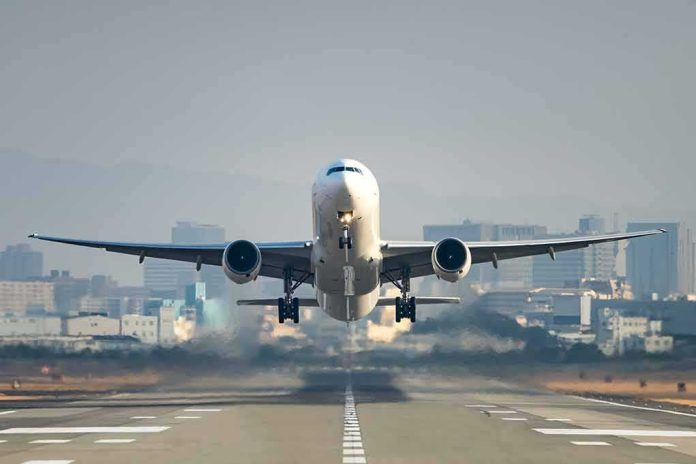
Delta Air Lines’ complete withdrawal from Midland International Air and Space Port this November threatens regional connectivity and exposes the vulnerability of smaller communities to corporate decision-making.
Story Snapshot
- Delta Air Lines will permanently end all flights to Midland International Air and Space Port (MAF) after November 2025.
- Passengers with existing Delta bookings from MAF must rebook with other carriers, reducing travel options.
- The decision marks a full exit, not merely a route reduction, and disrupts regional business and personal travel.
- Local officials are investing millions to attract new airlines and preserve Midland’s economic vitality.
Delta’s Strategic Exit: What It Means for Midland and Regional Travelers
Delta Air Lines has announced it will terminate all operations at Midland International Air and Space Port (MAF) effective November 2025. This action forces travelers with future Delta bookings from Midland to seek alternate carriers, immediately reducing airline competition and choices for the region. The move follows Delta’s 2025 Q2 earnings call, where the company emphasized the need to “adjust capacity to match demand,” signaling a shift toward network efficiency and profitability. For Midland, which only began daily Delta flights to Austin in April 2024, the abrupt exit disrupts both business and leisure travel and raises questions about the sustainability of air service in smaller markets.
Economic and Community Impact: Fewer Choices, Higher Costs
The permanent cancellation of Delta flights at MAF directly affects Midland-Odessa residents and businesses, who now face limited travel options and potential fare increases from remaining carriers like American and United. In the short term, the loss of a major airline creates immediate disruption for travelers and undermines regional economic growth, especially in an area reliant on robust connections for the oil industry and local commerce. Long-term consequences could include higher ticket prices, diminished competition, and reduced convenience, fueling frustration among those who depend on reliable air service for family and business needs.
Local Response and Airport Initiatives: Fighting for Connectivity
Midland officials have responded to Delta’s exit by launching plans to invest tens of millions in terminal expansion and customer service upgrades, hoping to entice new airlines and expand existing routes. Airport management and the city government are actively lobbying other major carriers to fill the gap and support the local economy. Despite these efforts, the power balance remains skewed, with airlines like Delta retaining unilateral control over network decisions and local stakeholders left to react. The move spotlights the need for policies that protect regional connectivity and prevent corporate decisions from undermining American communities.
Industry analysts note that Delta’s action is part of a broader trend in post-pandemic airline management, where carriers consolidate operations to maximize profitability and reduce exposure to underperforming regional routes. While some experts see this as a rational business move, others warn of the risks to economic development and local opportunity when service is lost. The story highlights the ongoing tension between corporate interests and public needs, especially in less-populated regions.
Industry Trends: The Decline of Small-Market Air Service
The Midland situation is not isolated; airlines have repeatedly cut service to smaller US airports since 2020, citing profitability concerns. Delta’s decision underscores the vulnerability of regional air travel to capacity adjustments and market realignments. As airlines focus resources on high-demand hubs, communities like Midland must contend with the fallout—reduced access, economic hardship, and diminished mobility. For conservative readers, this episode raises alarms about unchecked corporate power and the need for greater accountability to protect American values, local economies, and family connectivity.
With the final Delta flights departing MAF this November, Midland faces both immediate disruption and long-term uncertainty. The local government’s push for new connections and investment is critical, but the underlying challenge remains: ensuring that regional America is not left behind by decisions made in corporate boardrooms. The broader implications for the airline industry and regional communities demand continued vigilance and a renewed focus on protecting core values—choice, competition, and connectivity for all Americans.
Sources:
Delta Air Lines permanently cancels all flights to US airport after November
Delta Air Lines to Return to Tel Aviv in September
Delta Reverses Course After Canceling All Flights to Major Airport
Delta Air Lines – Current Advisories














